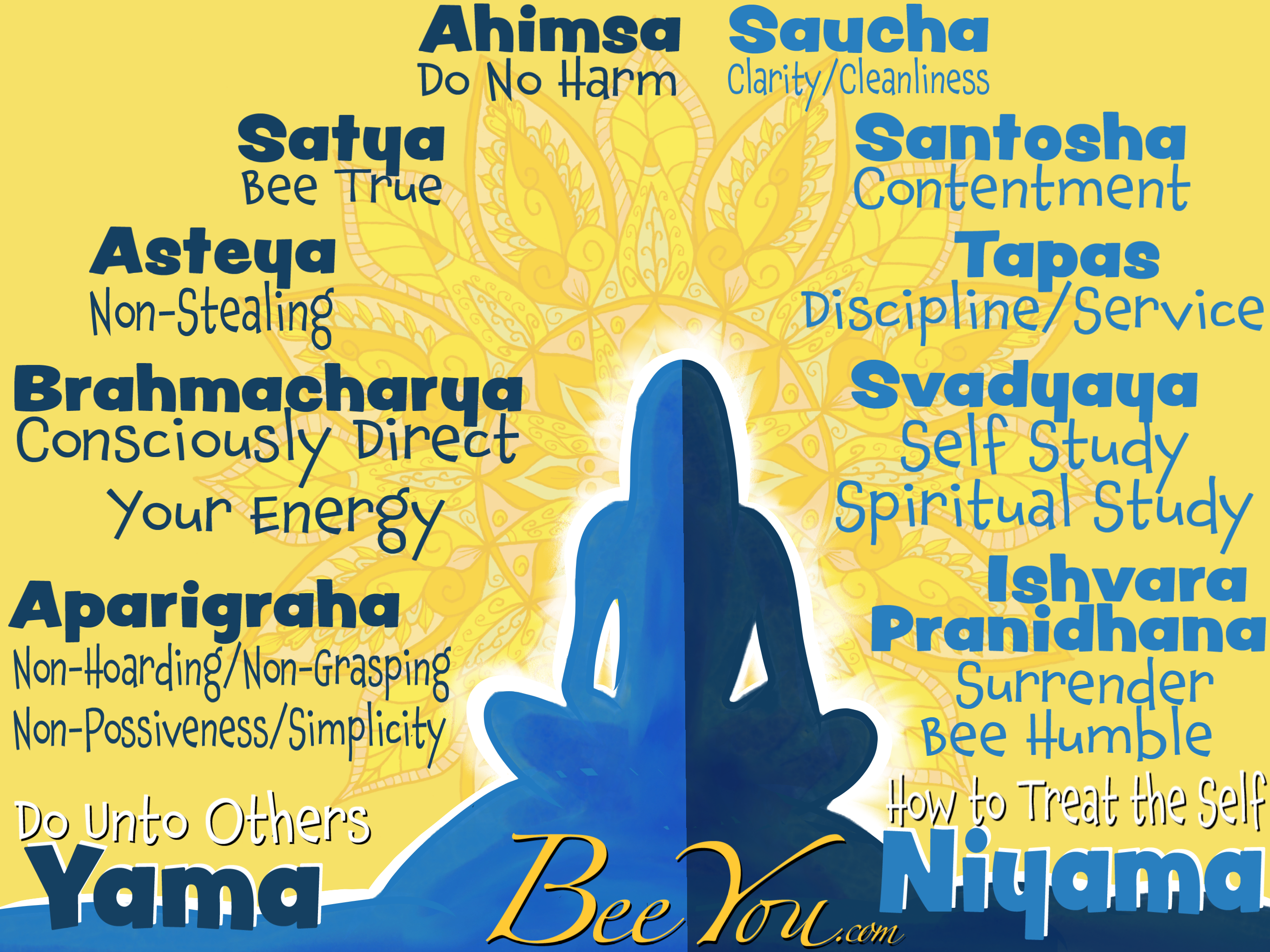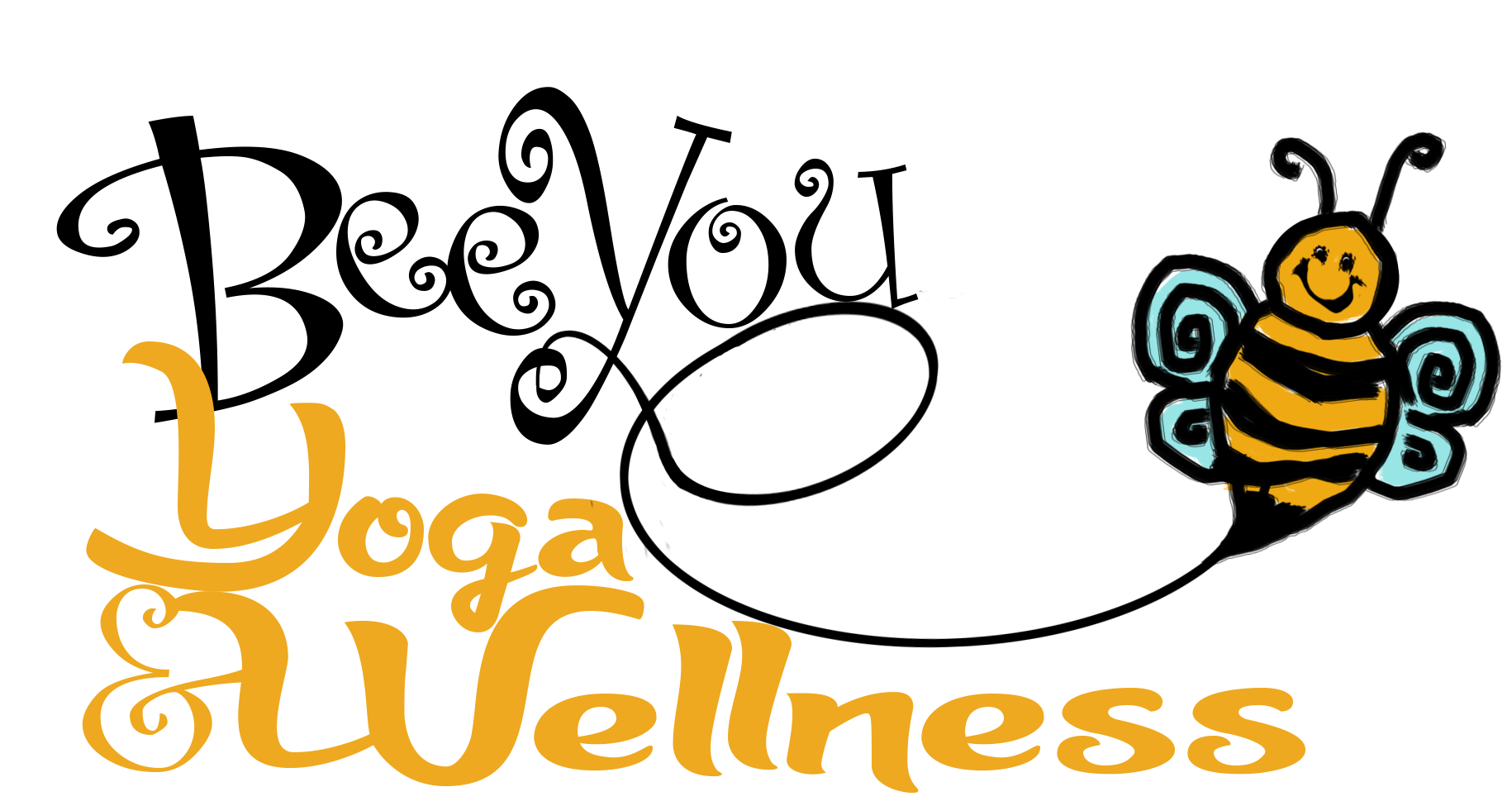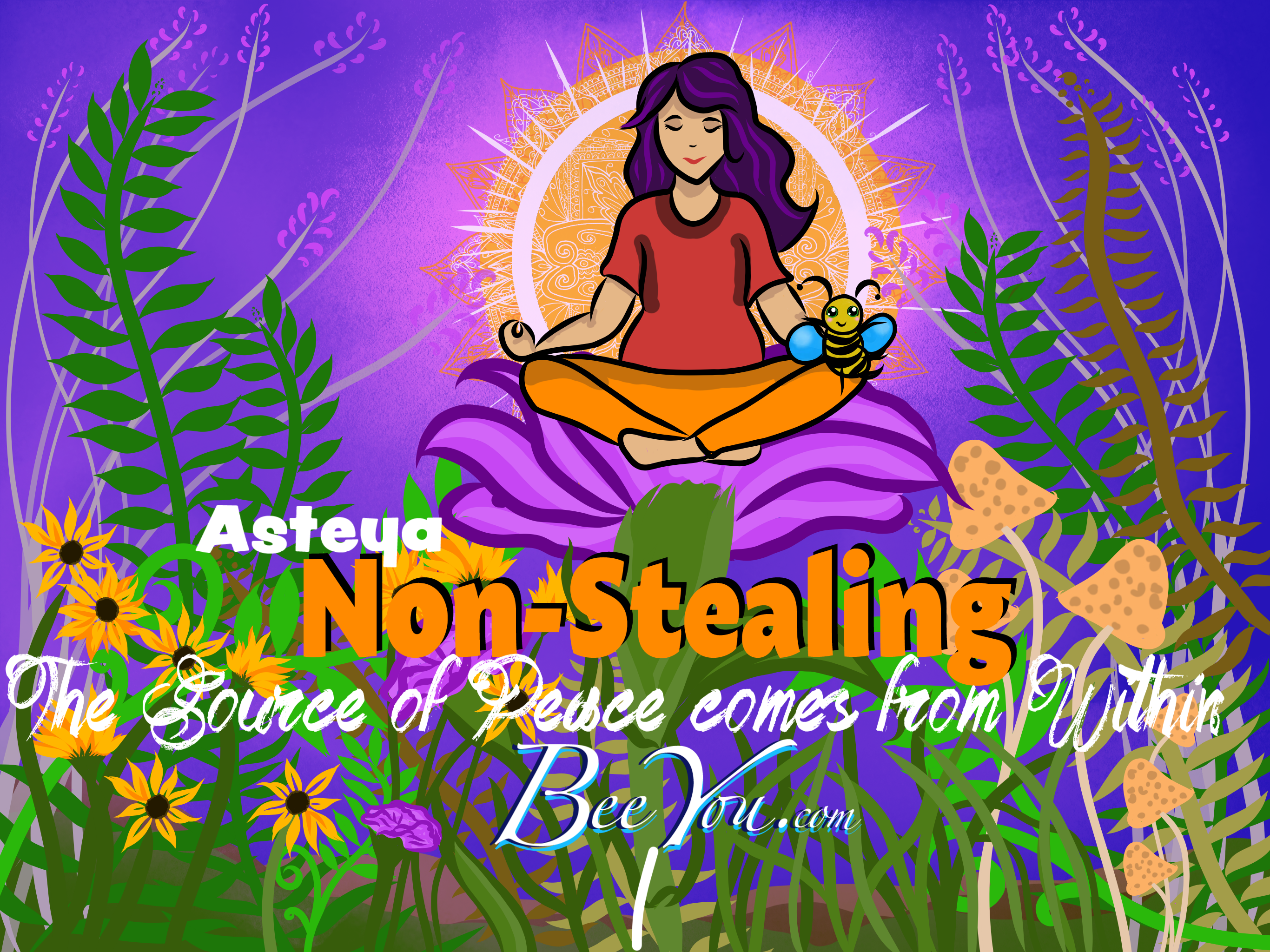The teachings of yoga have ethical principles that help guide us to a more comfortable way of living. Ethical principles need not be strict rules by which we judge the actions of others or something that divides us into “good” vs. “evil”. This guide provides a helpful method to break up the human experience and set us on a path that will provide more comfort in our everyday lives.
I often re-read these teachings, over and over, and seek out other people’s interpretations. I find that revisiting these teachings often highlights new ways I can incorporate them into my day to day life as I change. The following are some of the ways I have found to work for me.
The teachings are broken up into 2 parts, Niyama: how to treat ourselves and Yama: how to treat others. Each has 5 parts. The texts are written in an ancient language and have been through many translations into other languages and modern interpretations. It helps to open our minds to the more general message and how it might fit into our own modern life rather than trying to squeeze ourselves into someone else’s version of perfection or rules. The ancient language in which these texts were written is far more based on sound and vibration, more poetic than current language. Each word has many translations and many do not easily translate into current languages. It can be helpful to not get too caught up in the cognitive desperation for being exact and allow a more overall and deeper sense of the message to be absorbed. Listen with your innermost self and not so much your thinking mind. “Take what you need and leave the rest” but also invite the idea that at some other point in your life there may be new nuggets of wisdom that pop out that you may not have seen before. Look with fresh eyes and an open heart.
Yama: Do unto others
Do not take what is not yours. Simple right? Though this often seems the hardest principle to live by. Without meaning to, we often steal from each other in very subtle ways. When a friend is sharing their story we may feel excited to share a similar story and in doing so we interrupt and steal their experience of sharing with us. A loved one may be outpouring their grief and in an attempt to wrap them in love we hug them and halt the process of the processing of their own experience. When we see someone’s success and think “I wish I could be like that”, we steal from ourselves not only the joy of sharing in someone’s glow but the ability to let our own talents shine.
Asteya, at the deepest level, can be to abandon the intent to possess anything, material, talent, relationship, achievement, or natural resources. Our desire to define what belongs to “me” often causes us great distress. Conversely when we actively practice generosity, our lives are more pleasant. In this way Asteya can also be thought of as sharing.

Though this is a fundamental teaching in yoga, I often see Asteya being forgotten. Teachers put a slight spin on some movement philosophy, label it as uniquely their own, and set about making sure people only use their particular style if they have paid them money for their brand use. There are many infamous stories of how this can go horribly wrong. This also displays how we see truth through the lens of our own experiences. In such situations, either side sees the other as stealing. Which is the truth? The truth might be that both parties are stealing. The brand owner sees the person imitating as stealing their ideas. Yet the imitator might see all the teachings as belonging to the good of the whole and therefore sees the brand owner as the one stealing the experience from people who do not have the opportunity to learn directly from that brand owner.
Another example of Asteya being forgotten in a yoga class is a teacher informing a student of how a pose should or should not look, what they should feel, and how exactly they should live their lives with which precise rules to have in place or they are not a “true yogi”. This is stealing the experience of yoga from the student. Yoga needs to be experienced, felt on all levels. The path you took might look and feel very different from the path someone else needs to take. When you find yourself judging another person’s path or style it is a good reminder for you to return to self-reflection.
On your own mat when trying to imitate someone else’s version of a pose you may be stealing from yourself the experience of yoga. In pushing yourself into a shape your body may not be ready for or even able to perform due to one’s own bone structure you might be stealing from yourself the safety of practice and the intimate knowledge of your own physical body.
Another common practice of stealing from ourselves is the mind ruminating over past hurts or future worries. This steals from us the present moment. On a deep level we know that running over the past in our minds does not change the past. We also know that worrying about the future is not helpful. Yoga teaches us many techniques for landing in the present moment. The only moment that is real is the present moment. The past has already happened and the future is yet to come. The more we practice focusing on the present moment the more full our lives become. When our lives feel full, the less desires to grasp what is not ours control our thoughts and deeds.

Yoga is not the goal of perfection. Practicing yoga is not the ultimate recipe for becoming perfectly happy and never experiencing pain or sadness. Yoga is a union. To join all of the parts of ourselves. To realize that we are a whole and complete being that is ever-changing, learning and growing, yet not broken. There can be imbalances and disruptions in parts of ourselves, in the thoughts, in the spiritual layer, in the emotions… but this does not make us broken. There are tools we can use to get to know where these imbalances might be and techniques we can use to guide us to a more balanced “wholeness”. Yoga can guide us to a more balanced life, a more comfortable way of being in this human experience.
It can be helpful to see these teachings as helpful guides that we can refer back to over and over. Think about the physical practice of tree pose. It teaches us to balance in our physical body, how balance requires attention not only to our muscles but to our breath, our mind, and our feelings. We balance in tree pose, we wobble, we fall, we try again. Often we learn more about the pose and what is happening in the whole system on the days when we wobble and fall. The object of practicing these concepts in our lives is not to achieve perfection but to notice when we wobble, revisit what we might like to try different, and try again.
These ethical guides need not be harsh rules by which we judge ourselves or others. The general idea is to Bee Kinder to ourselves and Kinder to each other and the world will flow a lot more harmoniously!

